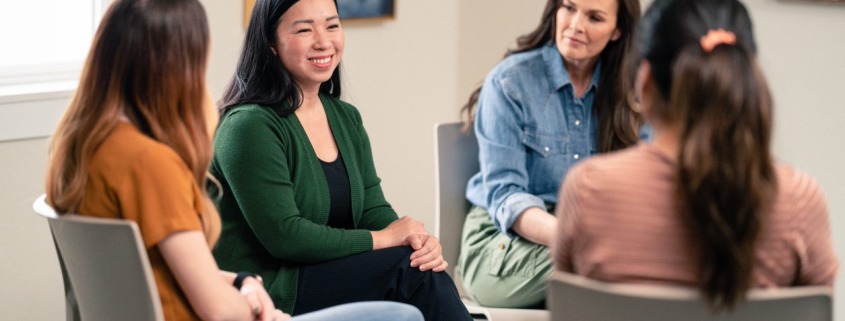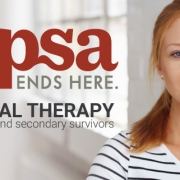You Are Not Alone: How CAPSA’s Support Groups Create Peer-Based Support
As a survivor of physical or sexual abuse, it can feel like you are alone and isolated in your experiences. However, at CAPSA, we know that survivors can benefit greatly from connecting with others who have shared similar experiences. That’s why we offer groups, which provide a safe environment for survivors to connect with one another and receive peer-based support. CAPSA offers support, educational, and therapy groups for victims of domestic violence and sexual abuse. Groups create a safe place to learn, process, and heal while developing a peer-based support network.
What are Support Groups?
Support groups are a form of therapy that involves connecting with others who have experienced similar traumatic events. The purpose of a support group is to provide a safe environment where survivors can share their experiences, feelings, and concerns with others who understand and empathize with what they are going through.
At CAPSA, we offer several different groups for survivors of domestic violence and sexual assault. These groups are facilitated by trained professionals who are knowledgeable about the unique needs of survivors. We also offer groups for specific populations, such as LGBTQ+ survivors or Spanish-speaking survivors, to ensure that everyone can receive the resources they need.
After one of CAPSA’s most recent support groups, one participant reported feeling more validated after participating in the group. She described feeling she is no longer alone. She stated that she usually feels a need for “a lot of words of affirmation,” so hearing the other disclosures in the group affirmed her experiences. Another participant reported leaving the group experience with validation, knowing that what she experienced was real and was abuse, and another participant said she gained confidence in assessing future relationships for red flags because of her participation in the group.
Benefits of Support Groups
- Peer-Based Support: Support groups offer survivors the opportunity to connect with others who have shared similar experiences. This peer-based support can be incredibly validating and healing, as survivors no longer feel like they are alone in their experiences.
- Validation: Survivors often struggle with feelings of shame, guilt, and self-blame after experiencing abuse. Being part of a support group can help survivors validate their experiences and understand that the abuse was not their fault.
- Increased Self-Esteem: Support groups can help survivors feel more confident and empowered. As they connect with others who have shared similar experiences, survivors may feel more comfortable expressing their thoughts and feelings, which can help boost their self-esteem.
- Coping Skills: Support groups can provide survivors with practical coping skills and strategies to help them manage their symptoms and emotions. By learning from others who have gone through similar experiences, survivors can develop new ways of coping with their trauma.
- Community: Support groups can help survivors build a sense of community and belonging. By connecting with others who understand and empathize with their experiences, survivors can feel less isolated and more supported.
“Working with groups means longer, harder hours, but I love it, so I keep volunteering to help with them,” said Stefani Taylor, a therapist in CAPSA’s clinical department. “My favorite thing about the Hope & Healing group for survivors of sexual assault is the growth of the group members. Typically, everyone is quiet when we start. The first day is a lot of facilitators talking, asking questions, and building rapport. But over a few sessions, members start to open up, share, and support each other. Bonds form and friendships begin in H&H. People who I never thought would say a word become some of the most frequent participants and some of the friendliest supporters of other group members. I can’t express how much I love watching people become comfortable with the group and close with each other. It is a bond I’ve never seen anywhere else, a really important, close, unspoken bond.”
Here to Help
At CAPSA, we are committed to providing survivor-centered services that meet the unique needs of each individual who seeks our support. When you call CAPSA at 435-753-2500, you can expect a warm and welcoming response, information and support, advocacy and support, and confidentiality. We want survivors to know that they are not alone and that they have the power to make informed decisions about their safety and well-being. If you or someone you know is experiencing domestic violence or sexual assault, please don’t hesitate to call CAPSA.



